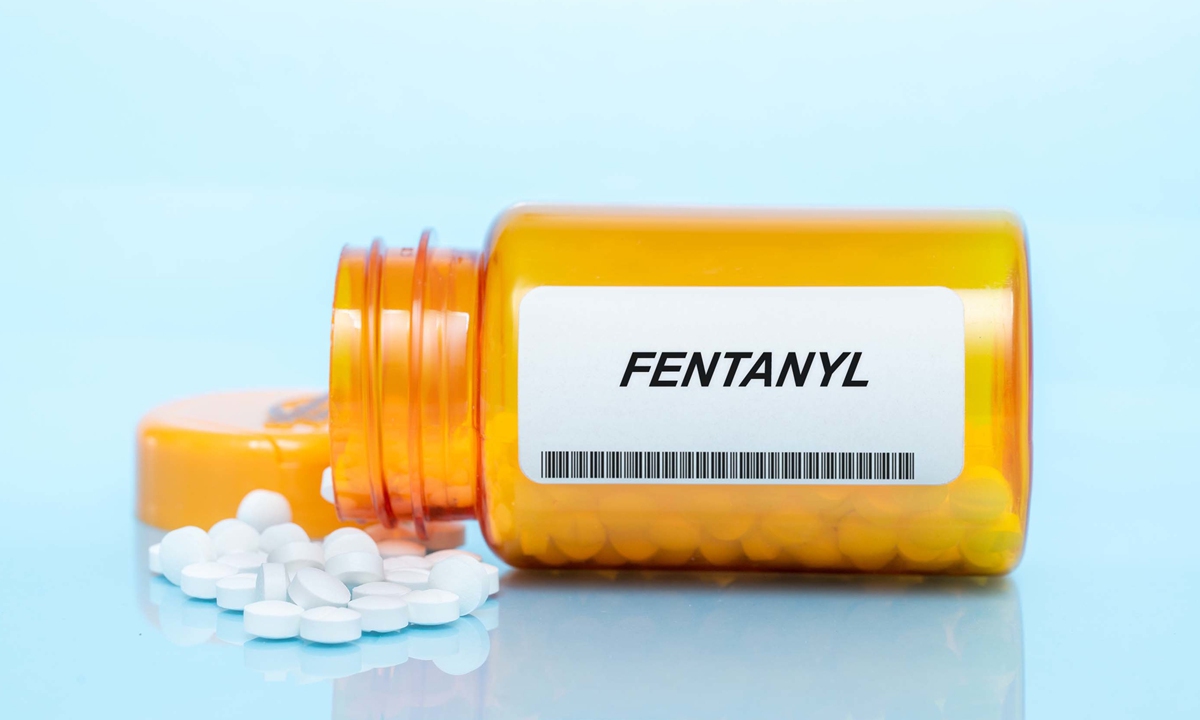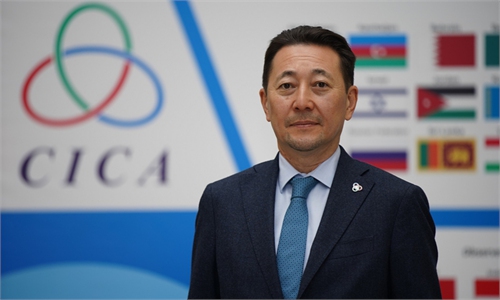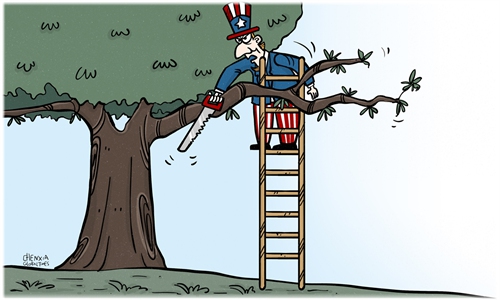
Photo: VCG
For quite many years, the Chinese government has consistently upheld the concept of a human community with a shared future, actively developing drug control cooperation with countries and international organizations around the world. China has continuously contributed its experience, solutions and strength to global drug control efforts and governance, specifically in the following three areas:First, China took the lead in implementing class-wide controls over all fentanyl-related substances. Fentanyl is a powerful opioid analgesic, prone to abuse and addiction, with overdose potentially leading to respiratory difficulties, coma, or even death. The US has long faced issues with opioid abuse, which has evolved into a painkiller culture. When access to prescription opioids was restricted, strong opioids such as heroin and fentanyl became substitutes for addicts. Additionally, fentanyl derivatives have been "designed" by modifying the chemical structure of fentanyl.
While fentanyl abuse has not become an issue in China, the country has closely monitored the harm caused by its abuse in the US and other countries and has gradually introduced corresponding control measures. In October 2015, China included six fentanyl-related substances in the supplementary list under the "Measures for the Administration of Non-Medical Use of Narcotic Drugs and Psychotropic Substances." In 2017 and 2018, four and two more fentanyl analogues were regulated, respectively. In May 2019, China became the first country in the world to implement class-wide control over fentanyl-related substances.
In addition to adopting the innovative "class-based control" measure, China has placed great importance on cooperation with the US, such as establishing the China-US counternarcotics working group to facilitate technical exchanges, intelligence sharing, joint investigations, substance control and multilateral cooperation.
Second, China actively promotes the establishment of international drug control cooperation mechanisms. China has signed over 50 government-to-government and inter-agency drug control cooperation agreements with more than 30 countries and international organizations. Annual meetings have been established with 13 countries and joined multilateral drug control mechanisms such as the Greater Mekong Subregion, the SCO and BRICS. Additionally, China has set up 13 border drug control liaison offices with neighboring countries, and conducted technical exchanges with dozens of countries. Through continuously deepening trust and cooperation with other countries in all aspects of drug control, China has played a positive role in advancing global and regional drug governance.
The Mekong Memorandum of Understanding (MOU) on Drug Control, which includes China, Laos, Myanmar, Thailand, Vietnam, Cambodia and the United Nations Office on Drugs and Crime (UNODC), has become the most important multilateral drug control cooperation mechanism in the region. China's firm stance on combating drug crimes, along with its active participation in international and regional drug control cooperation, has been widely recognized and praised both domestically and internationally.
Third, China is comprehensively advancing international drug control cooperation. In recent years, Chinese drug enforcement agencies have continually enhanced their international cooperation capabilities. They have actively promoted the establishment of a "Safe Passage of the Mekong River" and the China-Australia "Flame." These efforts have led to the successful disruption of numerous major transnational drug trafficking cases in collaboration with countries like Cambodia and Laos.
Going forward, the Chinese government will earnestly implement President Xi Jinping's Global Development Initiative, Global Security Initiative and Global Civilization Initiative. China will continue to honor its drug control commitments and international obligations, actively expand and deepen international drug control cooperation, and keep contributing Chinese wisdom and strength to the global governance of drug issues.
The author is the director of the drug control teaching and research office at the People's Public Security University of China. opinion@globaltimes.com.cn



